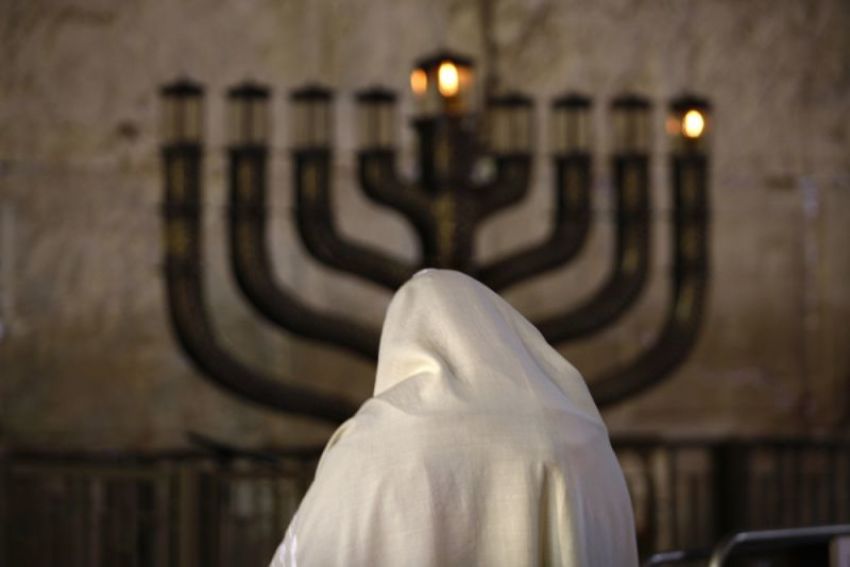Can Christians celebrate Hanukkah?

Hanukkah, the Jewish Festival of Lights, began Sunday, a holiday which starts on the 25th of the Jewish month of Kislev and lasts for eight days.
In the Gregorian calendar it begins December 2 and concludes December 10 in 2018.
Hanukkah is also known as the Feast of Dedication, and while it is not written about in the Old Testament, it was an observance Jesus took part in during his earthly life.
"At that time the Feast of Dedication took place at Jerusalem. It was winter, and Jesus was walking in the temple, in the colonnade of Solomon," John 10:22-23 recounts.
The holiday is fundamentally about the miracle of God being with the Jewish people during a time of great hardship and persecution, according to Dr. Michael Brown, a Messianic Jewish scholar and host of the Line of Fire, in a 2017 video explaining the meaning of the holiday.
Hanukkah was not a biblical holiday per se in the sense that it was ordained by God in the Torah, but it was something regularly celebrated by the time Jesus showed up on the scene. Many Messianic Jews still celebrate Hanukkah as opposed to Christmas, and mark the birth of Jesus at other times in other ways, Brown noted.
Historically speaking, the holiday commemorates the acts of the pre-Jesus Jewish Maccabees, who defeated a Syrian army that had left the Jewish temple defiled.
The temple had been desecrated with the inclusion of a Hellenistic priest, the sacrifice of non-kosher pigs on the altar, and other practices against Jewish teachings. The Jews had revolted against Antiochus IV Epiphanes, who had ruled over them from 175 to 164 BC and had attempted to outlaw such things as circumcision.
As part of Jews rededicating the Temple, part of the ceremony was to light the menorah, but since the golden Menorah had been stolen by the Syrians, the Maccabees fashioned one made of cheaper metal.
"When they wanted to light it, they found only a small cruse of pure olive oil bearing the seal of the High Priest Yochanan," Chabad.org, an online orthodox Jewish resource, explains.
"It was sufficient to light only for one day. By a miracle of G-d, it continued to burn for eight days, til new oil was made available. That miracle proved that G-d had taken His people under His protection. In memory of this, our sages appointed these eight days for annual thanksgiving and for lighting of candles."
David Brickner, executive director of the Messianic Jewish group Jews for Jesus notes that in the month of December he will celebrate both what God did in Jewish history in addition to the coming of the Messiah at Christmas, emphasizing His faithfulness.
"Because God keeps His promises, He will save and sustain Israel. Because God keeps His promises, He will save and keep all those who call upon His name through faith in Immanuel, our Messiah Jesus," Brickner wrote.
"Because God keeps His promises, He has made each blood-bought believer to be His own Temple, where Immanuel, God with us, has taken up residence. And so because God keeps His promises, please join us in dedicating ourselves anew to live for Him by the power of the Ruach ha Kodesh, the Holy Spirit who burns within us."
Christians, that is, Gentile believers in Jesus, should be mindful of the fact that they are not obligated under any “law” to celebrate any of the Jewish festivals given to Israel in the Torah, Christian apologetics group Got Questions Ministries notes on its website.
"But to all true Believers in Jesus Christ, especially those who have a profound appreciation for the Hebraic roots of our Christian faith, celebrating the 'true light' of this world only seeks to glorify our wonderful Lord and Savior."
"As Christians, we can celebrate the 'Festival of Lights' as we rededicate our lives to Christ and acknowledge Him as the perfect and true light of this world. As believers, when we celebrate Chanukkah it reminds us of God's wonderful miracles on our behalf. It reminds us of God's protection throughout our lives. It reminds us to remain true to God even when the world around us tries to force us into assimilation."



























